
Moby Grape is an American rock band founded in 1966. Part of San Francisco's psychedelic music scene, the band merged elements of rock and roll, folk music, pop, blues, and country. They were one of the few groups of which all members were lead vocalists and songwriters. The group's first incarnation ended in 1969, in part due to members Bob Mosley and Skip Spence suffering from mental illness. The group has reformed many times afterwards and continues to perform occasionally.

Alexander "Skip" Spence was a Canadian-born American singer-songwriter and musician. He was co-founder of Moby Grape, and played guitar with them until 1969. In the same year, he released his only solo album, Oar, and then largely withdrew from the music industry. He had started his career as a guitarist in an early line-up of Quicksilver Messenger Service, and was the drummer on Jefferson Airplane's debut album, Jefferson Airplane Takes Off. He has been described on the AllMusic website as "one of psychedelia's brightest lights"; however, his career was plagued by drug addiction coupled with mental health problems, and he has been described by a biographer as a man who "neither died young nor had a chance to find his way out."

Jerry Miller was an American songwriter, guitarist and vocalist. He performed as a solo artist and as a member of the Jerry Miller Band. He was also a founding member of the 1960s San Francisco band Moby Grape, which continues to perform occasionally. Rolling Stone included Miller at number 68 on their list of the 100 greatest guitarists of all time and Moby Grape's album Moby Grape at number 124 on their 2012 list of 500 greatest albums of all time. Miller's longtime guitar was a Gibson L-5 CES Florentine guitar which he called "Beulah".

Moby Grape is the 1967 debut album by rock band Moby Grape. Coming from the San Francisco scene, their reputation quickly grew to immense proportions, leading to a bidding war and a contract with Columbia Records. The album peaked at #24 on the Billboard 200 albums chart in September 1967.
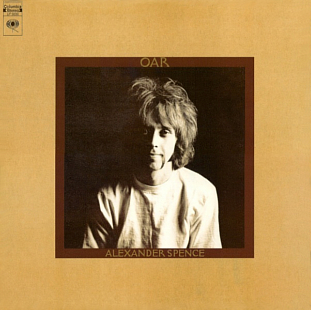
Oar is the only studio album by American singer-songwriter Alexander "Skip" Spence, released on May 19, 1969, by Columbia Records. It was recorded over seven days in December 1968 in Nashville, and features Spence on all of the instruments.

Moby Grape '69 is the third album by the psychedelic rock band Moby Grape, released on January 30, 1969.
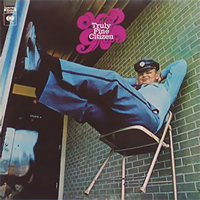
Truly Fine Citizen is the fourth studio album by American rock band Moby Grape. It was released on July 30, 1969, by Columbia Records. After completing the album, the band went on hiatus until 1971 when they reunited with Skip Spence and Bob Mosley to record the reunion album, 20 Granite Creek.

20 Granite Creek is the rock band Moby Grape's fifth album. After recording their last album for Columbia Records, Truly Fine Citizen, the band went on hiatus until 1971 when they reunited with Skip Spence and Bob Mosley and recorded this reunion album for Reprise Records; their only album for the label. David Rubinson, who produced most of the band's Columbia albums, was back as producer here, as well as serving as the band's manager.. The album title refers to an address near Santa Cruz, CA but there is no record that any band member ever lived there. The rights to this album are now owned by the band after previous manager, Matthew Katz, lost them when the band successfully sued him in 2007.
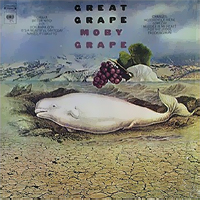
Great Grape is a compilation album released by Columbia Records in 1972 that compiles songs from three of Moby Grape's Columbia albums - Moby Grape, Wow, and Moby Grape '69. It has been speculated that Columbia's decision to release this album was based solely on trying to capitalize on any interest generated in Moby Grape by the then-recent release of a new studio album, 20 Granite Creek, on Reprise Records. For some unknown reason the album was never issued on a cassette tape, although it was issued on an 8-Track tape.

James Robert "Bob" Mosley is an American musician principally known as the bass player and one of the songwriters and vocalists for the band Moby Grape. Some of his best-known songs with Moby Grape are "Mr. Blues", "Come In The Morning", and "Lazy Me" from the first Moby Grape album (1967), and "Gypsy Wedding" from the 20 Granite Creek (1971) album.
Don Stevenson is the American drummer and a singer and songwriter for Moby Grape, a band which was formed in San Francisco in 1966 and continues to perform occasionally today.

The Place and the Time is a compilation album of demos, outtakes, alternative versions and live versions of songs by Moby Grape, released by Sundazed Music in 2009 in CD and double LP format.

Vintage: The Very Best of Moby Grape is a retrospective collection of Moby Grape songs, many previously unreleased, originally issued in 1993 as part of Columbia Records' "Rock Artifacts" series. Included in the collection was the entire eponymous first album of the group, generally considered to be one of the most important albums of its era. Noted rock critic David Fricke wrote the liner notes to the compilation.

Crosstalk: The Best of Moby Grape is a 2004 compilation album by Moby Grape, released by Sony International. It was released at a time when the legal status of ownership of Moby Grape recordings was uncertain.

Listen My Friends! The Best of Moby Grape is a compilation album by Moby Grape, released in 2007 by Columbia Records as part of its "Legacy" series. The title of the album is a reference to lyrics repeated in the song "Omaha" on the group's debut album.
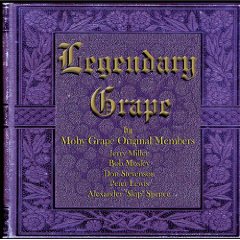
Legendary Grape is an album by Moby Grape, released by Dig Music in 2003.
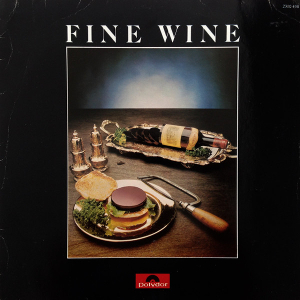
Fine Wine is an album released in 1976 by Polydor Records in Germany, by a group of the same name. The four-person group included two members of Moby Grape, Jerry Miller and Bob Mosley, who also wrote or co-wrote most of the songs on the album. For these reasons, the album is often regarded as a Moby Grape album.
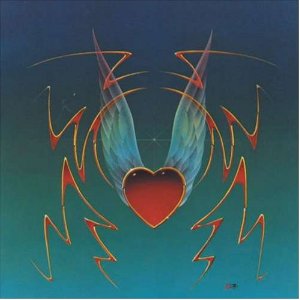
Moby Grape '84 is a 1984 album released by Moby Grape on the San Francisco Sound label. It is also known as "Silver Wheels" album, after the introductory song on the album, and as the "Heart Album", as referenced to the album cover.
The Rhythm Dukes was a short-lived band featuring Jerry Miller and Don Stevenson of Moby Grape. They were later joined by Bill Champlin, an original member of the Sons of Champlin and later a member of Chicago.

Moby Grape Live is a 2010 album, released by Sundazed Music, of previously unissued live recordings of the band Moby Grape. Included are recordings of the band in its prime in 1966 and 1967, as well as 1969 recordings, subsequent to the 1968 collapse and departure of founding member Skip Spence. A particularly notable inclusion is the band's performance at the historic Monterey International Pop Festival. According to critic Mark Deming, "While Moby Grape's studio work might offer a clearer picture of the strength of their songs, Moby Grape Live does a brilliant job of revealing what made them great as a band, and the best tracks here should prompt any serious fan of late-'60s rock to reaffirm Moby Grape's status as one of the finest acts of their time." According to another reviewer, "After the essential debut record, this is the Moby Grape record I would recommend next."



















